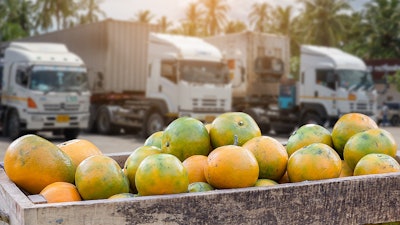
The concept of ERP has been around for several decades, but only in recent years has the practice been truly perfected and honed. Today’s economy is robust and diverse, with different kinds of businesses that require unique tools and functionalities. For this reason, ERP has experienced a massive shake-up, with the sector deciding to zero in on specific industries instead of trying to be a jack of all trades, yet the master of none.
An Entire Industry Revolutionized
This is a strategy most recently perfected by Microsoft Dynamics 365 partner, Inecta. They have completely revolutionized the food space by creating a solution that is entirely tailored to food businesses of every caliber. They have led the charge for ERP companies looking to target a specific industry that desperately needs ERP for all their many different processes. For food, this couldn’t be more important. Every variation of food business has several key facets that can either make or break them. Whether it’s supply-chain management, lot traceability, transportation management, or warehousing, food companies absolutely require a tailored ERP system that understands their operation.
What Is the Need?
The argument for the necessity of industry-specific ERP systems is bolstered by the fact that ERP systems are often complex in nature, with a lot of confusion surrounding the system’s primary function and purpose. For example, an ERP system that is not specific to any industry may be able to help expedite certain aspects of a seafood processor’s accounting and finances but falls short when it comes to managing a seafood processor’s warehouse inventory. These “one-size-fits-all” ERP solutions simply do not make the grade when you pit it against high functioning, industry-specific systems like Inecta Food. It has transformed the Food ERP industry by applying industry-specific features to every one of their sub-industry products, or “SIPs”. Within each SIP, there is a full suite of industry-specific tools and/or features that are essential for each respective sub-industry. So, regardless of whether you’re a produce packer/shipper, an aquaculture farm, or a beverage bottling company, there is an Inecta Food solution designed to serve your business’s unique needs. Companies like Inecta have employed the “divide and conquer” method to their software by taking the large problem that is optimizing processes and breaking it down into literal sub-problems, or for ERP purposes, sub-industries.
Surveying the Situation
Currently, not many ERP companies offer industry-specific solutions. In an attempt to lure in a broader customer base, a considerable amount of ERP solutions have elected to widen their scope, offering their services to any businesses that will have them. This business strategy is inherently flawed due to all the aforementioned issues most commonly experienced by food businesses. That’s why food companies need to seriously consider the likes of industry-specific ERP solutions that fully understand all the numerous processes that make up a food distribution business, or a seafood trader, or virtually any kind of food-related business that is looking to efficiently streamline every facet of its operation.






















